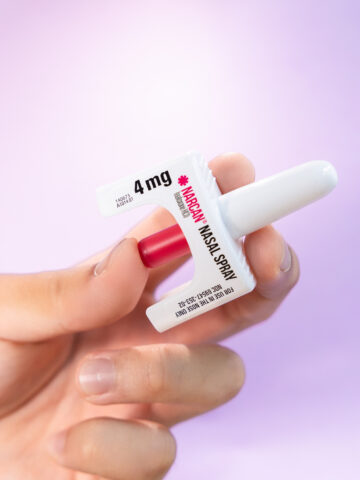Parents hoping to curb their children’s caffeine consumption should look beyond obvious sources like energy drinks, soda, tea and coffee, and pay close attention to added caffeine in products, says a CHOC Children’s clinical dietitian.
and coffee, and pay close attention to added caffeine in products, says a CHOC Children’s clinical dietitian.
“You can find a number of foods that have caffeine added to them,” says Jan Skaar. “Parents should be cognizant and careful when they’re food shopping so that they’re not contributing to a problem.”
A number of products boosted with caffeine are hitting the market. For example, caffeinated chewing gum, fruit juices, candy, sunflower seeds and beef jerky are now available to consumers.
The uptick in such products has contributed to the Food and Drug Administration (FDA) announcement earlier this year that it would investigate the safety of caffeine in food products, particularly its effects on children and adolescents.
The FDA has so far made caffeine consumption recommendations only with regard to adults, but the American Academy of Pediatrics discourages such consumption by children and adolescents.
“There’s never a nutritional need for caffeine,” Skaar says.
Indeed, products purported to increase energy are unnecessary for children; a balanced lifestyle with proper activity, sleep and nutritional intake should be sufficient for a healthy child to sustain energy levels, she says.
“If children have decreased energy, you really have to look at the bigger picture,” Skaar says. “What’s going on with their daily schedule or activities? Are they sleeping enough? Are they sleeping consistently? Are they eating three meals a day with a couple of snacks?”
If kids have schedules that are packed with sports and other after school activities and report low energy, they might benefit from some extra rest or quiet time, Skaar says. Other children in need of a quick pick-me-up might consider a quick burst of activity, rather than turning to so-called energy boosting products.
“It’s just like for an adult,” she says. “If you hit that afternoon slump, what might be better than heading to the coffee machine is to take a 15-minute walk. You’ll get a lot more energy for doing that.”
Similarly, parents hoping to keep kids off caffeine should also examine their own behavior and habits.
“When I’m talking to parents about helping their children eat healthier, I ask them to think about what they are eating themselves, because, remember, your kids are watching you,” Skaar says.





